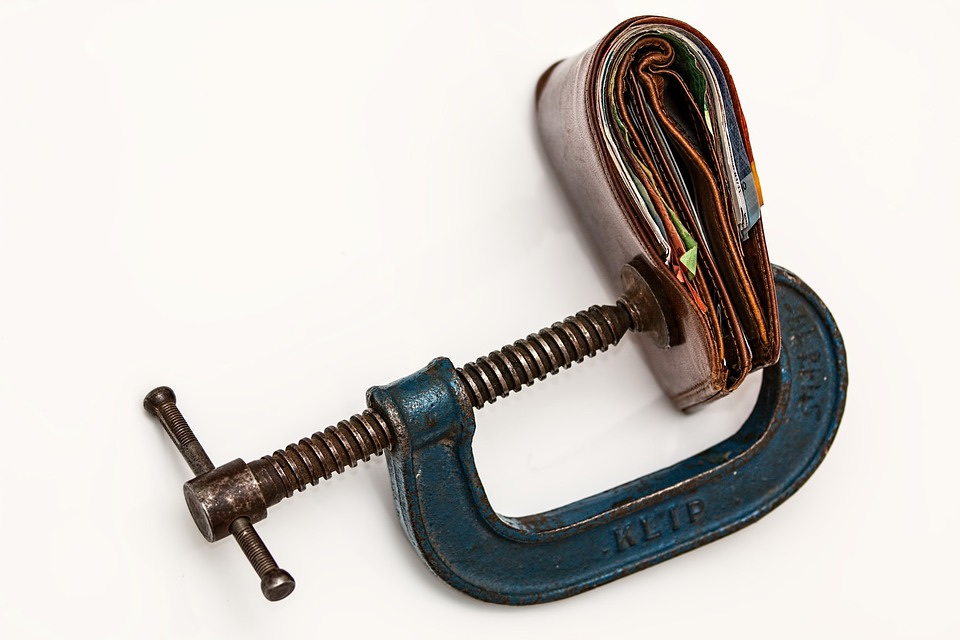Inflation and Your Credit: How Rising Prices Can Affect Your Credit Score and Finances
Inflation, the increase in the general price level of goods and services in an economy over time, can have a significant impact on your personal finances and credit score. As prices rise, the value of your money decreases, and it becomes more challenging to purchase the same goods and services as before. This can lead to reduced purchasing power, increased debt, and even a negative impact on your credit score. In this article, we will explore the effects of inflation on your credit and provide guidance on how to mitigate its impact on your financial well-being.
The Impact of Inflation on Credit Utilization
Inflation can significantly affect your credit utilization, which is the ratio of your outstanding balances to your credit limit. As prices rise, it may become more challenging to pay off your debt, leading to a higher credit utilization ratio. A higher credit utilization ratio can negatively impact your credit score, making it more difficult to secure loans, credit cards, and other credit products in the future.
For example, if you have a credit card with a $1,000 limit and a balance of $800, your credit utilization ratio is 80%. If prices rise by 10% over the next year, the same balance of $800 may not be as substantial as it was previously, meaning your credit utilization ratio would still be 80%, but your real debt burden has increased. This situation can lead to a higher credit utilization ratio, which can negatively affect your credit score.
Inflation’s Impact on Credit Score
Inflation can also affect your credit score directly by increasing the cost of credit. As prices rise, lenders may increase interest rates to keep up with inflation, making it more expensive for borrowers to borrow money. This can lead to a higher credit score, as it becomes more difficult for borrowers to manage their debt.
Additionally, inflation can also affect your credit score by reducing the value of your credit card rewards and cashback programs. For example, if you have a rewards credit card that offers 1% cashback, a 10% increase in prices would reduce the value of your rewards by 10%, making it more challenging to redeem your rewards.
Ways to Mitigate the Impact of Inflation on Your Credit and Finances
To mitigate the impact of inflation on your credit and finances, consider the following strategies:
- Budgeting: Review your budget and adjust it to account for the increased prices. Identify areas where you can cut back and allocate the savings towards debt repayment or savings.
- Debt Consolidation: Consolidate your debt into a single, lower-interest loan or credit card to reduce your interest payments and make it easier to manage your debt.
- Emergency Fund: Build an emergency fund to cover 3-6 months of living expenses in case ofunexpected events or price fluctuations.
- Diversification: Diversify your investments to reduce the impact of inflation on your portfolio. Consider investing in bonds, real estate, or other fixed-income investments.
- Credit Score Maintenance: Monitor your credit report and score regularly to identify any potential issues and address them promptly. Make timely payments, keep credit utilization ratios low, and avoid applying for numerous credit products to maintain a good credit score.
- Inflation-Resistant Assets: Consider investing in assets that historically perform well during periods of inflation, such as precious metals, commodities, or Treasury Inflation-Protected Securities (TIPS).
Conclusion
Inflation can have a significant impact on your credit score and finances, particularly if you’re not prepared. By understanding the effects of inflation on your credit utility and score, you can take proactive steps to mitigate its impact. By budgeting, consolidating debt, building an emergency fund, and diversifying your investments, you can reduce the risk of inflation and maintain a healthy financial situation. Remember to monitor your credit report and score regularly and maintain a good credit standing to ensure you’re eligible for the best loan rates and credit products in the future.
FAQs
Q: Will inflation always reduce the value of my savings?
A: Not always. Inflation can also lead to increased economic growth, job creation, and a stronger economy.
Q: Can I simply increase my spending to keep up with inflation?
A: No, increasing your spending to keep up with inflation can lead to debt and overspending.
Q: Will inflation always increase the cost of borrowing?
A: Not always. Lenders may adjust interest rates based on market conditions, which may not always keep pace with inflation.
Q: How often should I review and adjust my budget?
A: At least quarterly to ensure you’re accounting for changes in prices and expenses.
Q: Can I protect my investments from inflation?
A: Yes, through diversification, investing in assets that historically perform well during periods of inflation, and monitoring your investments regularly to adjust accordingly.
By understanding the impact of inflation on your credit and finances, you can make informed decisions to protect your financial well-being and maintain a healthy credit score.

Leave a Reply